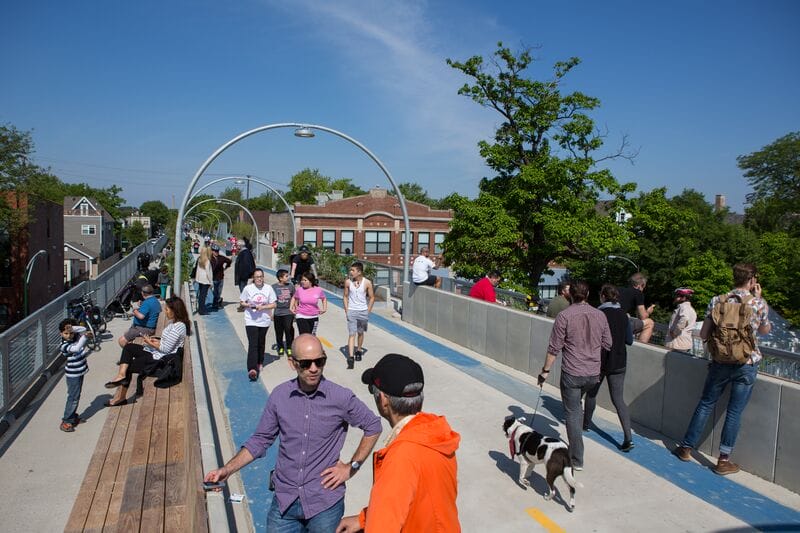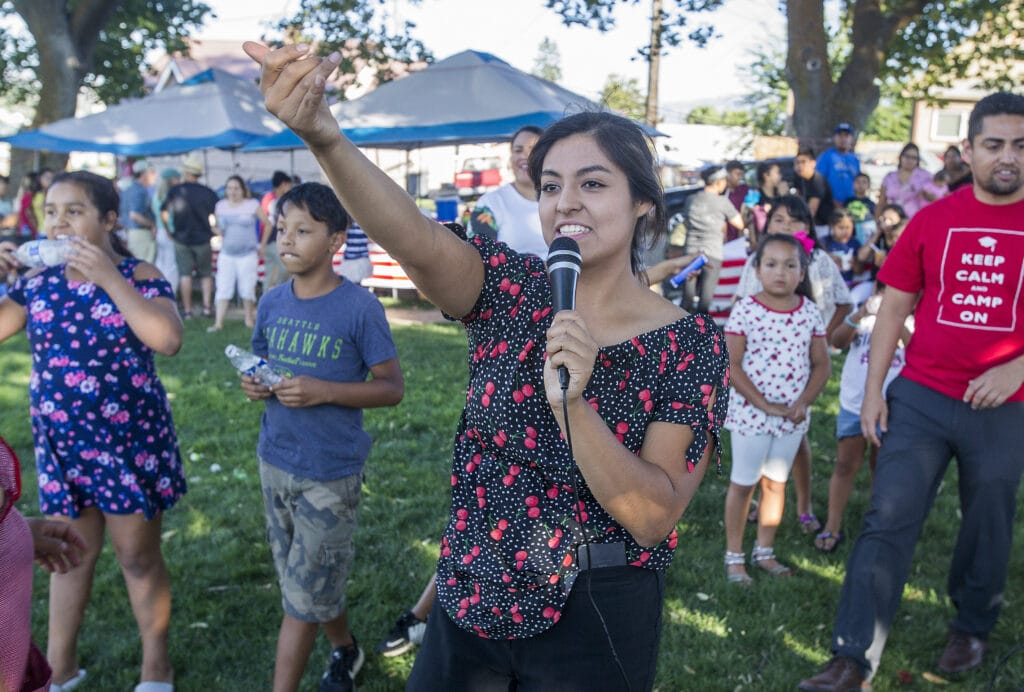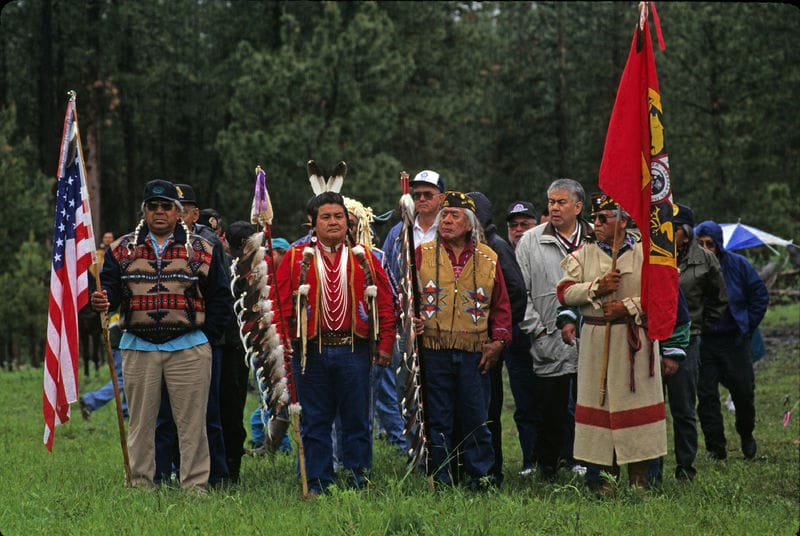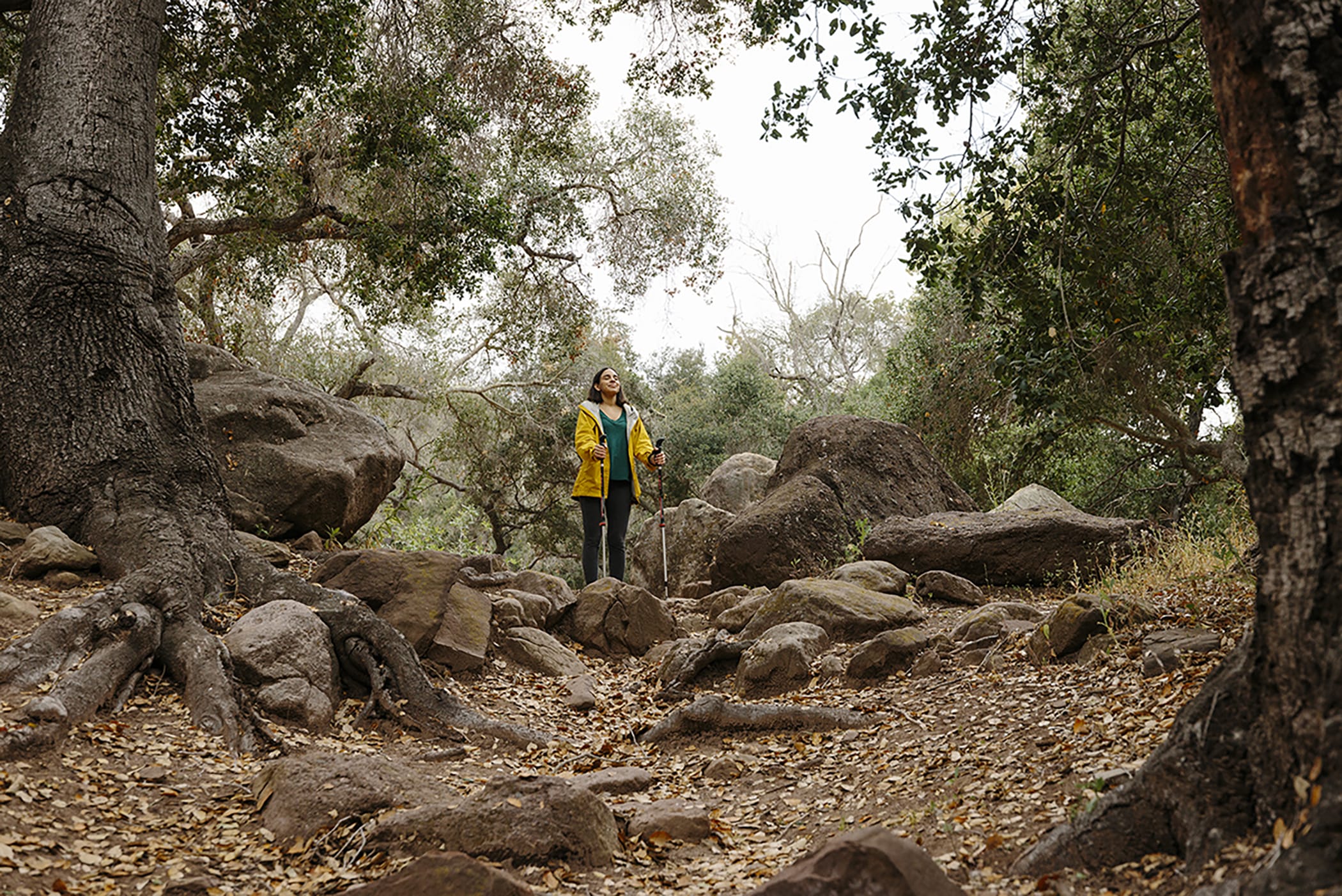In nature, we think of disruption as a moment that obstructs or arrests a normal process. A wildfire, disease outbreak, or an infestation, for example, can interrupt or alter the expected course of events in an ecosystem. It happens in the human world too. Things happen—politics shift, you get a medical diagnosis, countries go to war—that alter the trajectory of our lives on micro and macro scales. The rules change. It seems abrupt. We feel, for a moment or longer, unsettled.
But disruption also brings opportunity, and it’s often followed by a period of advancement. That’s why, at Trust for Public Land, we’ve embraced plot twists. In some cases, we’ve instigated them.
One-third of Americans, including 28 million children, lack safe, easy access to a park within a 10-minute walk of home. Urge your senators to allocate funding to create parks and enhance outdoor recreational opportunities by championing the Outdoors for All Act today!
Disruptors: We Were Born This Way
Our founding mission was, itself, disruptive—changing the conventional rules of engagement around conservation. “When we started out, we were outcasts,” says Marty Rosen, a longtime executive director of TPL and one of its first employees. “We were expelled from the Nature Conservancy because our first projects were not biologically pure. We were doing projects that involved people, school children, migrants, all kinds of people. And we were told that that was not part of the conservation agenda.” Rosen adds that TPL values the public just as much as the land—neither can thrive without the other.
“People are part of the land; land is part of the people,” says Rosen. “Land protected well and stewarded by the people can be a source of wellness and resilience. It can be an instrument of social justice.”
We expected some resistance to the people part of our mission—it was a novel, disruptive concept. But there were times, especially during the Reagan years, says Rosen, when even the land part faced opposition. Everything was for sale, he recalls.
There were folks who wanted to sell the National Parks. “In…our society, there’s always going to be tension. Hopefully, that tension produces something of an intrinsic and lasting value.”
In other words: when there is disruption, make it count.
Disrupt the Narrative. Change the Outcome.
Today the Bloomingdale Trail in Chicago, known colloquially as The 606, is a source of tremendous pride, beauty, and respite for residents of northwest Chicago. But if you ask those who lived in the area at the time, repurposing a section of Chicago’s defunct elevated train line into a 3-mile linear park was messy, loud, and, well, disruptive.
It’s why Chris Lea first got involved with TPL. In fact, he admits he came to an early community meeting to complain but found himself drawn into conversations about what the park could be, what it would be called, how it would be landscaped. “It was…refreshing to see that [TPL] cared what we wanted versus helicoptering in and dropping a park down on the city,” says Lea, who’s now a TPL board member. Because our process allowed Lea and others in the community to envision—and have some say in—what the park would eventually be, they were willing to endure the temporary chaos knowing the result would be something transformative. And it was.

Photo: Adam Alexander
The revitalized Bloomingdale Trail helped to change the narrative of this industrial, once-crime-riddled corridor into one of Chicago’s most beloved outdoor spaces that connects parks, people, and communities.
Indeed, many of TPL’s park projects are, themselves, acts of disruption that shake communities out of gridlock. Countless times, we’ve looked at something going in one direction—or going nowhere at all—and said, let’s change course here.
In Wenatchee, Washington, a history of displacement and unfulfilled promises by local authorities made it hard for the community to trust in the possibility of a renovated park. Teresa Bendito, a teenager at the time, got involved as a paid community organizer with Trust for Public Land after accompanying her mom to an early public forum. Like her mother, other residents were deeply passionate about what the park could be, but they were also skeptical because, Teresa says, “trust had been broken within the years of [previous] failed initiatives or failed programming for (the) community.”
Trust for Public Land took time to build trust with the community, constantly asking, “What do you want to create and how can we help?” As the community began to trust that their participation and their input would be valued and honored, the inertia lifted, and things started to happen. And the progress was remarkable. “I saw the impact when people realized how much power they have…as people who may not have had the opportunity before to express themselves in their language in a place where they felt comfortable,” Bendito says.

Teresa Bendito looks for competitors for a game during the Cherry Fest at Kiwanis Methow Park in Wenatchee. Photo: World photo/Mike Bonnicksen
She adds that the movement took a little more shape and the mission grew as people realized the effort had implications beyond the park itself. “We’re talking about our local park but [also] how this is connected to our housing, to our health and well-being.” The residents began advocating for more, organizing a Latino legislative day at the state capital and get-out-the-vote rallies. By knocking on doors and helping people understand the impact their vote could have, they tripled the Latino vote in the community, Bendito says.
Today the Wenatchee park is flourishing, and so is the community around it. The park opened just before COVID-19, which meant that people had a safe space to play and connect with their neighbors. Local organizers held health fairs in the park and used it as a place to connect residents and undocumented people affected by the pandemic to essential resources.
The willingness to disrupt the past disenfranchisement of local residents and to take the time necessary to build trust with the community meant that the people who would use the park were the ones who were designing and activating it. In this case, TPL and local residents repaired the breach. But sometimes, we’ve found, we’re the ones who need to be disrupted.
Restoration through Disruption
Our country’s complicated history is rife with social injustices in which land and people are intertwined. And though social justice has been in TPL’s bones since the beginning, we’ve evolved our understanding of how best to serve the people at the core of our mission, as former CEO Will Rogers knows well.
TPL’s Oregon office worked for years in partnership with the U.S. Fish and Wildlife Service in the 1990s and early 2000s to protect a 10,000-acre ranch in the Wallowa Valley of northeastern Oregon. It had great habitat for salmon, bear, mountain lion, bald eagle, you name it.

After years of work, TPL staff had secured the funding and were closing in on a deal to complete the purchase and hand the property over to USFWS. “One day, three members of the Nez Perce Tribe walked into our office and asked us if we knew about that land,” Rogers recalls. “We said, ‘Yeah, it’s got a great habitat on it; Fish and Wildlife is really excited about it.’ And they said, ‘No. Our name for that land is…precious lands, and [it] is the ancestral homeland of the Nez Perce Tribe. Chief Joseph was born on that land, and over 100 years ago the U.S. Cavalry chased us out of that land, and we ended up on reservations. And we have kept our love of that land alive, sitting around the campfire at the reservation for the last 100 years.’”
Telling the story today, Rogers barely takes a breath.
“We basically called our partners at Fish and Wildlife and said, ‘Sorry, we can’t do this.’”
The project was already fully funded, the complex negotiations complete, but the Oregon team called the whole thing off and started over, this time raising the money to return the land to the Nez Perce Tribe.
After 100 years in exile, nearly 300 members of the tribe returned to their native land, Appaloosa ponies and all. Their ceremonies and rituals have returned, and the profound spiritual relationship between people and place has been restored.
Sometimes Doing Nothing Is the Most Disruptive Thing We Can Do
Fifty years ago, we began this work as people who wanted to safeguard the land. Today, we have a growing appreciation for land’s power to safeguard us—if only we’d let it.
Nature teaches us that winter is always followed by spring, so we know not to despair in cold and dark because light and color will return again.
When a tree falls, it feeds the forest beneath it for generations and reminds us that the end of one thing is always the beginning of something else. The eternal cycle of the tides and the fractals of the natural world remind us that all that occurs is part of something larger, part of a pattern that perhaps, as humans, we can barely understand.
“We have access to solutions today, and those solutions involve listening to communities and nature,” says Dana Bourland, an environmental grant-maker and social justice champion who hears the same siren call of distress we all do.
“The more natural spaces, green spaces, park spaces…the better our human well-being and the better the planet will be in terms of taking action against climate [change]. We as humans created the problem, and we need to stop so that nature can return to what it does best, capturing carbon, reducing heat island effects, absorbing water, replenishing the aquifer—the natural cycle of the planet.”
Nature has always taught us what we need to know to survive. And in a culture where we think the answer to everything is take control, take action, push ahead, perhaps the most disruptive thing we can do: let nature take the lead.

Donate to become a member, and you’ll receive a subscription to Land&People magazine, our biannual publication featuring exclusive, inspiring stories about our work connecting everyone to the outdoors.

